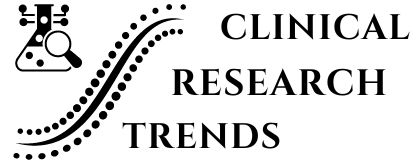The Use of Blockchain Technology in Clinical Research
Blockchain technology, a revolutionary concept initially developed for cryptocurrencies like Bitcoin, has far-reaching applications beyond finance. At its core, blockchain is a decentralized, secure ledger system that allows for recording transactions in a manner that is both transparent and immutable. The technology's fundamental characteristics—immutability, transparency, and decentralization—make it an ideal candidate for addressing several challenges in clinical research. In clinical research, where data integrity, security, and trust are paramount, blockchain technology can offer a transformative solution.
Clinical research involves the systematic investigation of medical interventions, treatments, and technologies to determine their efficacy, safety, and potential applications. This field generates vast amounts of data, including patient information, trial protocols, and results, which must be handled with the utmost care. Ensuring the security and integrity of this data is crucial for maintaining trust among stakeholders, including patients, researchers, regulatory bodies, and the general public. However, the current systems used for data management in clinical research often face challenges related to data security, transparency, and trustworthiness. Blockchain technology, with its secure and transparent nature, has the potential to revolutionize the way clinical research data is managed, ensuring that all stakeholders can have confidence in the results.
Enhancing Data Security
Understanding Data Security Needs in Clinical Research
The sensitivity of data in clinical research cannot be overstated. Researchers handle a wealth of information, from patient demographics and health records to genetic data and detailed records of medical interventions. The protection of this data is not only an ethical obligation but also a legal requirement under regulations such as the Health Insurance Portability and Accountability Act (HIPAA) in the United States and the General Data Protection Regulation (GDPR) in the European Union. The risks associated with data breaches, unauthorized access, and data manipulation are significant, as they can lead to privacy violations, loss of public trust, and financial penalties.
Traditional data management systems in clinical research often rely on centralized databases, which, despite various security measures, remain vulnerable to cyber-attacks and data breaches. These centralized systems can become single points of failure; if a hacker gains access to the central database, they can potentially access all the data it contains. Furthermore, the potential for data manipulation by malicious insiders or external actors poses an ongoing threat to the integrity of clinical research data. Ensuring that data remains unaltered from the point of collection to final analysis is crucial for maintaining the validity and reliability of research outcomes.
How Blockchain Improves Data Security
Blockchain technology addresses many of the security concerns associated with traditional data management systems. At its core, blockchain employs advanced encryption and cryptographic techniques to secure data. Each piece of data entered into the blockchain is encrypted and linked to the previous entry using a unique cryptographic hash. This creates a chain of data blocks that is immutable, meaning once data is recorded on the blockchain, it cannot be altered or deleted. This immutability is a critical feature for clinical research, where the integrity of data is paramount.
Moreover, blockchain's decentralized nature enhances security by distributing data across multiple nodes in the network. Unlike centralized systems, where data is stored in a single location, blockchain data is replicated across numerous nodes, each holding a complete copy of the blockchain. This decentralization makes it exceedingly difficult for a single entity to compromise the entire system. Even if one node is attacked or compromised, the data on the blockchain remains secure because the other nodes can verify and maintain the integrity of the information.
Example: Use Cases in Healthcare
The application of blockchain in healthcare to enhance data security is already being explored and implemented. One notable example is the MedRec project, developed by researchers at the Massachusetts Institute of Technology (MIT). MedRec utilizes blockchain technology to manage electronic health records (EHRs), providing a decentralized and secure platform for storing and sharing patient data. The system gives patients control over their health data, allowing them to grant access to healthcare providers as needed. By ensuring that all access and changes to the data are logged and immutable, MedRec enhances the security and integrity of patient information.
Another example is the collaboration between the U.S. Food and Drug Administration (FDA) and IBM Watson Health, which aims to explore the use of blockchain for secure data exchange in clinical trials. This project focuses on improving data security and transparency in clinical research by using blockchain to securely share and verify data among researchers, sponsors, and regulatory bodies. These initiatives demonstrate the practical application of blockchain in enhancing data security in healthcare and clinical research.
Increasing Transparency in Clinical Trials
The Need for Transparency in Clinical Research
Transparency in clinical research is essential for ensuring the credibility and validity of study findings. It involves the open and honest reporting of all aspects of the research process, including trial protocols, methodologies, and results. Transparency is particularly important in preventing selective reporting and publication bias, where only positive or favorable results are published, while negative or inconclusive findings are withheld. This selective reporting can skew the scientific literature, leading to misguided clinical practices and policies based on incomplete information.
The lack of transparency in clinical research can also erode public trust. Patients and the broader community need to trust that the research conducted is ethical, unbiased, and accurately reported. Furthermore, regulatory bodies and policymakers rely on transparent data to make informed decisions regarding the approval and use of new medical interventions. Therefore, ensuring that all clinical trial data is accessible and verifiable is crucial for maintaining the integrity and credibility of the research process.
Blockchain’s Role in Promoting Transparency
Blockchain technology offers a robust solution for enhancing transparency in clinical trials. The fundamental structure of blockchain—a decentralized and immutable ledger—ensures that all data entries are recorded in a chronological and tamper-proof manner. This feature is particularly useful for clinical trials, where maintaining a clear and transparent record of the study process is critical.
One of the key benefits of blockchain in promoting transparency is its ability to provide a publicly accessible ledger for clinical trial data. Researchers can record trial protocols, patient consent forms, and study results on the blockchain, making this information accessible to all stakeholders. This open access helps ensure that all trial results, whether positive, negative, or inconclusive, are available for scrutiny and review. By preventing the selective reporting of results, blockchain helps create a more complete and accurate picture of the evidence base for medical interventions.
Additionally, blockchain’s timestamping and provenance tracking capabilities further enhance transparency. Every data entry on the blockchain is timestamped, providing a clear record of when the data was collected or modified. This feature is crucial for maintaining the integrity of clinical trial data, as it allows stakeholders to verify the timing and sequence of events. Provenance tracking ensures that the origin and history of each data point are transparent and verifiable, reducing the risk of data manipulation or misrepresentation.
Case Study: Projects Utilizing Blockchain for Transparency
Several projects are exploring the use of blockchain to promote transparency in clinical research. One notable initiative is the Clinical Trials Transparency Initiative, which aims to create a blockchain-based platform for recording and sharing clinical trial protocols and results. This platform seeks to ensure that all trial data is accessible and transparent, thereby preventing selective reporting and promoting evidence-based decision-making.
Another example is the PHUSE Blockchain Working Group, which is focused on enhancing transparency and traceability in clinical trial data sharing. This group is developing guidelines and standards for using blockchain to securely share clinical trial data among researchers, sponsors, and regulatory bodies. These projects highlight the growing interest and potential of blockchain in fostering transparency in clinical research, ultimately leading to more reliable and trustworthy study outcomes.
Building Trust Among Stakeholders
Challenges in Building Trust in Clinical Research
Trust is a fundamental component of clinical research, influencing everything from patient recruitment to the interpretation and application of study findings. However, building and maintaining trust in clinical research can be challenging due to several factors. One significant issue is the potential for data manipulation, either by researchers seeking to produce favorable results or by sponsors with vested interests in the study's outcomes. The influence of sponsors and the potential for conflicts of interest can further erode trust among stakeholders, including patients, regulatory bodies, and the broader scientific community.
Another challenge is the complexity of the clinical trial process, which often involves multiple parties, including sponsors, contract research organizations (CROs), and regulatory bodies. Ensuring that all parties adhere to ethical standards and maintain data integrity throughout the research process is crucial for building trust. However, the lack of transparency and accountability in some aspects of clinical research can make it difficult for stakeholders to have confidence in the study's findings.
Blockchain as a Trust-Building Tool
Blockchain technology offers a powerful tool for building trust among stakeholders in clinical research. One of the key ways blockchain fosters trust is through its decentralized verification process. In a blockchain network, data is verified and validated by multiple nodes, rather than a single centralized authority. This decentralization ensures that no single entity has control over the data, reducing the potential for conflicts of interest and ensuring that data is free from manipulation.
Furthermore, blockchain's immutability and transparency provide stakeholders with confidence in the accuracy and reliability of the data. The fact that data cannot be altered or deleted once it is recorded on the blockchain ensures that all information is preserved in its original form. This feature is particularly important for clinical research, where the integrity of data is essential for ensuring valid and reliable study outcomes.
Blockchain also has the potential to enhance trust through the use of smart contracts. Smart contracts are self-executing contracts with the terms of the agreement directly written into code. In the context of clinical research, smart contracts can be used to automate and enforce the terms of agreements between sponsors, researchers, and participants. For example, a smart contract could automatically release funding based on the completion of specific trial milestones, ensuring that all parties adhere to the agreed-upon terms. This automation reduces the need for intermediaries and increases efficiency, while also ensuring that the process is transparent and fair.
Real-World Examples of Blockchain Increasing Stakeholder Trust
Several real-world examples demonstrate how blockchain has increased trust among stakeholders in clinical research. The Estonia e-Health Foundation, for instance, has implemented a blockchain-based system to secure and verify patient health records. This system ensures that patients and healthcare providers can trust the accuracy and security of health data, fostering greater confidence in the healthcare system. By providing a transparent and immutable record of all transactions, the system helps build trust among patients, healthcare providers, and regulatory bodies.
Another example is the BurstIQ platform, which uses blockchain to secure and manage health data. BurstIQ allows patients to control their data and share it securely with healthcare providers and researchers. This level of control and transparency helps build trust among patients, who can be confident that their data is being handled responsibly and securely. By providing a secure platform for managing sensitive health data, BurstIQ enhances trust among all stakeholders in the healthcare ecosystem.
Regulatory and Ethical Considerations
Regulatory Landscape for Blockchain in Clinical Research
The use of blockchain in clinical research is subject to various regulatory considerations, particularly concerning data privacy and security. Regulations such as the General Data Protection Regulation (GDPR) in the European Union and the Health Insurance Portability and Accountability Act (HIPAA) in the United States set strict standards for the protection of personal data, including health information. These regulations require organizations to implement appropriate technical and organizational measures to ensure data security and protect individuals' privacy rights.
Blockchain's immutable and transparent nature poses unique challenges for compliance with these regulations. For example, GDPR grants individuals the right to access, modify, or delete their personal data. However, the immutability of blockchain means that once data is recorded, it cannot be altered or deleted. This characteristic can make it challenging to comply with data protection regulations that require organizations to provide individuals with control over their personal data.
Moreover, the regulatory landscape for blockchain is still evolving, with many jurisdictions yet to establish clear guidelines or standards for its use in healthcare and clinical research. This lack of regulatory clarity can create uncertainty for organizations looking to implement blockchain solutions, particularly concerning compliance with data protection and privacy laws. Organizations must navigate these regulatory challenges carefully, ensuring that their use of blockchain aligns with legal and ethical requirements.
Ethical Implications
In addition to regulatory considerations, the use of blockchain in clinical research raises several ethical issues. One key concern is the potential for breaches of patient privacy, particularly if personal health information is stored on a public blockchain. While encryption and anonymization techniques can mitigate this risk, it is essential to ensure that ethical standards are maintained throughout the blockchain implementation process.
Another ethical consideration is the need to balance transparency with patient privacy. While blockchain can enhance transparency by providing a public record of clinical trial data, it is crucial to ensure that sensitive patient information is adequately protected. This balance can be challenging to achieve, particularly given the decentralized and transparent nature of blockchain technology. Ethical considerations also extend to issues of informed consent, data ownership, and the potential for unequal access to blockchain technology, which could exacerbate existing disparities in healthcare and clinical research.
Challenges and Future Directions
Technical and Practical Challenges
While blockchain offers significant potential for enhancing data security, transparency, and trust in clinical research, several technical and practical challenges must be addressed. One major challenge is the scalability of blockchain systems, particularly concerning the storage and processing of large volumes of data. Traditional blockchain systems, such as Bitcoin and Ethereum, are limited in their capacity to handle large-scale data storage and processing, which can be a significant limitation for clinical research applications.
Another challenge is the cost of implementing and maintaining blockchain solutions. Developing and deploying a blockchain system can be expensive, particularly for organizations with limited resources. Additionally, integrating blockchain with existing clinical research systems and data formats can be complex and time-consuming, requiring significant technical expertise and resources. Organizations must carefully consider these technical and practical challenges when planning and implementing blockchain solutions.
Future Trends and Opportunities
Despite these challenges, the future of blockchain in clinical research looks promising, with several emerging trends and opportunities on the horizon. One potential area of growth is the development of specialized blockchain platforms and protocols designed specifically for clinical research and healthcare applications. These platforms could offer enhanced scalability, security, and functionality, making them more suitable for managing large-scale clinical trial data.
Another exciting development is the potential for blockchain to facilitate the integration of other emerging technologies, such as artificial intelligence (AI) and the Internet of Things (IoT), into clinical research. For example, blockchain could be used to securely collect and manage data from IoT devices, such as wearable health monitors, while AI algorithms could analyze this data to provide insights into patient health and treatment outcomes. The combination of blockchain with AI and IoT could lead to new and innovative approaches to clinical research, enabling more personalized and data-driven healthcare.
Additionally, the use of blockchain in clinical research could expand to include new models of patient engagement and participation. For example, blockchain could enable patients to contribute their health data to research projects in a secure and transparent manner, while maintaining control over their data. This patient-centric approach could enhance patient trust and engagement in clinical research, leading to more robust and diverse data sets.
Notable Labs and the Use of Blockchain Technology in Clinical Research
Notable Labs is at the forefront of integrating cutting-edge technology into clinical research, utilizing blockchain to revolutionize data management. Blockchain, originally developed for cryptocurrencies like Bitcoin, offers a decentralized and secure ledger system ideal for clinical research's unique challenges. This technology ensures data integrity, security, and transparency—critical components for maintaining trust among patients, researchers, and regulatory bodies. By leveraging blockchain's immutable and transparent nature, Notable Labs is enhancing data security, preventing data breaches, and promoting transparency in clinical trials. This innovative approach not only safeguards sensitive patient information but also fosters trust and reliability in research outcomes, ultimately advancing the field of personalized medicine and therapeutic development.
Conclusion
In conclusion, blockchain technology offers significant potential for enhancing data security, transparency, and trust in clinical research. By providing a decentralized, secure, and transparent platform for managing data, blockchain can address many of the challenges currently facing the clinical research industry, including data breaches, selective reporting, and lack of trust among stakeholders. However, realizing this potential will require addressing several technical, regulatory, and ethical challenges, including ensuring compliance with data privacy laws, maintaining patient privacy, and addressing scalability and cost concerns.
Despite these challenges, the future of blockchain in clinical research looks bright, with numerous opportunities for innovation and growth. As the field continues to evolve, it will be crucial for stakeholders to explore and embrace blockchain solutions, ensuring that clinical research remains secure, transparent, and trustworthy. By doing so, we can improve the quality and reliability of clinical research, ultimately benefiting patients, researchers, and the broader healthcare community.
We invite readers to share their thoughts and experiences with blockchain in clinical research. How do you see blockchain technology impacting the future of clinical trials and healthcare data management? Are there any specific challenges or opportunities you think are particularly important? We encourage you to engage with this conversation and explore further reading on this topic, as the potential applications and implications of blockchain in clinical research are vast and continually evolving. By participating in this dialogue, we can collectively explore new ways to enhance the integrity, transparency, and trustworthiness of clinical research through innovative technologies like blockchain.










